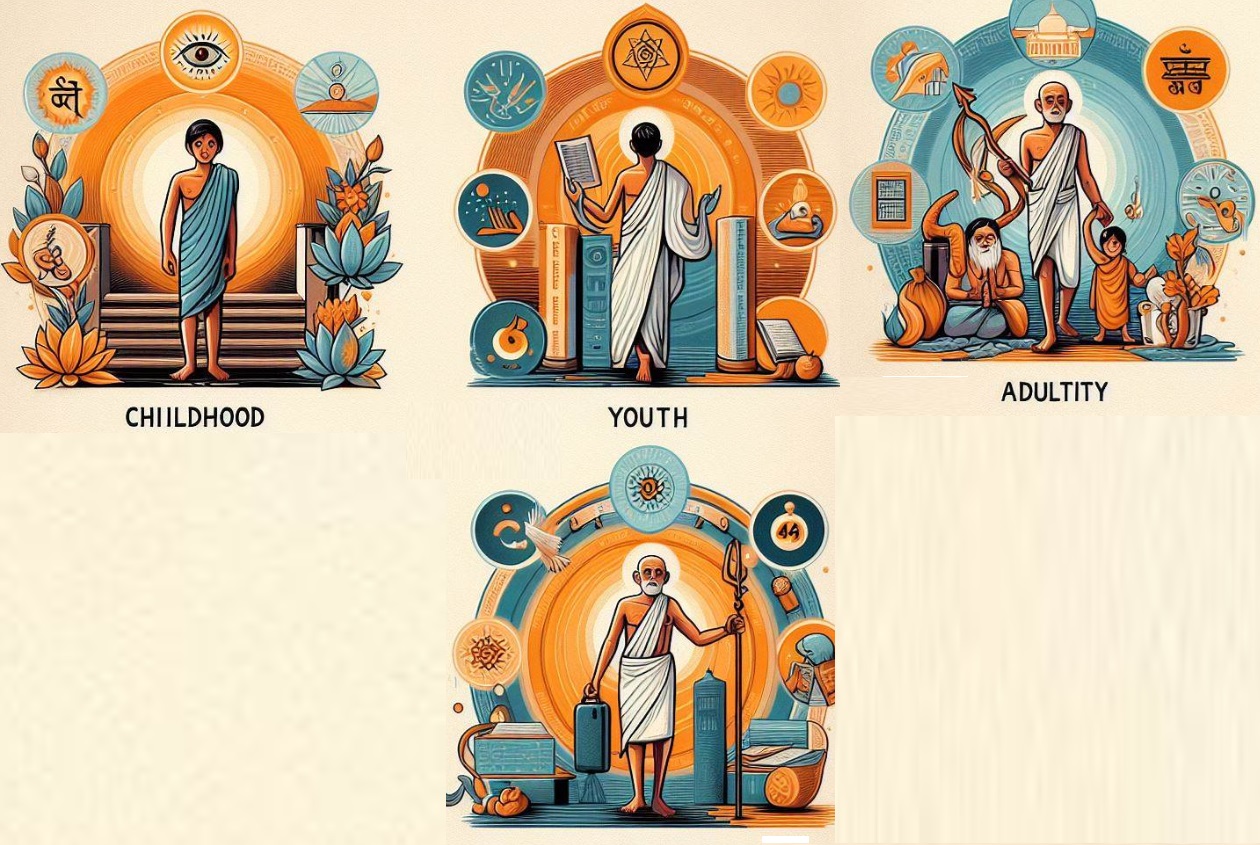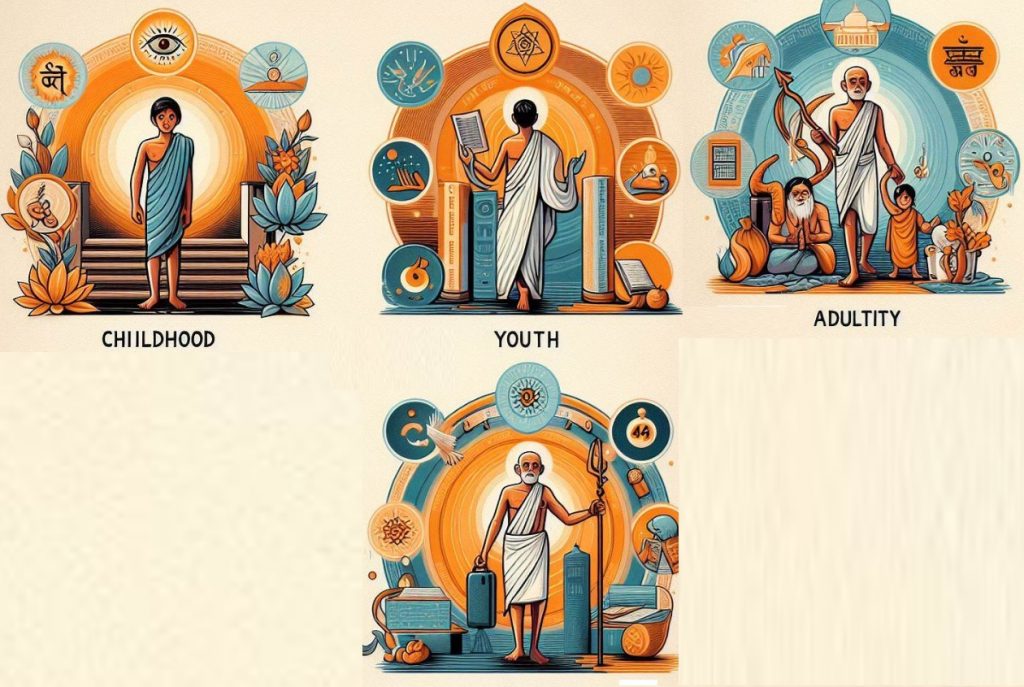
The Four Stages of Life and Their Ultimate Goal: A Study of the Bhagavad Gita

The Bhagavad Gita outlines four stages of life, known as ashramas, based on age, occupation, and spiritual inclination:
- Brahmacharya (Student): From childhood to adolescence, marked by learning, discipline, and celibacy. The student studies under a guru and delves into sacred scriptures.
- Grihastha (Householder): From adulthood to middle age, marked by marriage, family, and social duties. The householder performs righteous actions, enjoys life’s pleasures in moderation, and fulfills societal obligations.
- Vanaprastha (Retiree): From middle age to old age, marked by detachment, renunciation, and austerity. The retiree withdraws from worldly affairs, focusing more on spiritual pursuits like meditation, pilgrimage, and service.
- Sannyasa (Renunciant): An optional stage, usually taken after the previous ones. Marked by complete renunciation of attachments, possessions, and desires, dedicated to the supreme goal of liberation (moksha).
These stages aim to help individuals achieve the four goals of life, or purusharthas:
- Dharma (Righteousness): Moral duty based on life stage, caste, and personal nature, including universal laws and cosmic order.
- Artha (Wealth): Material and economic well-being, enabling the fulfillment of needs and desires, involving means such as education, profession, and politics.
- Kama (Pleasure): Sensual and emotional enjoyment, encompassing love, romance, art, music, and beauty, fulfilling natural desires like food, clothing, and shelter.
- Moksha (Liberation): The ultimate goal, freedom from the cycle of birth and death (samsara), realizing one’s true self (atman) and its identity with the supreme self (brahman).
The Bhagavad Gita emphasizes that these goals are interdependent and complementary. Pursuing artha and kama in accordance with dharma, one can attain moksha through devotion, action, or knowledge, as guided by Lord Krishna.





